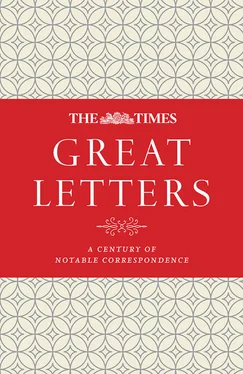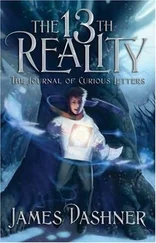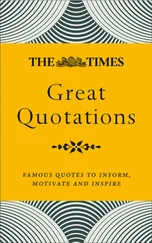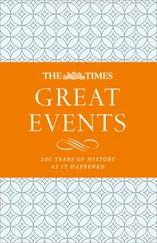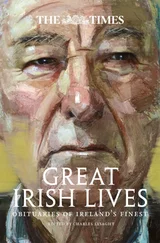I am, Sir, &c.
H. C. HONY
* * * * * * *
Gone to the dogs
23 December 1927
May I be permitted to express, on behalf of the executive committee of the Girls’ Life Brigade, strong disapproval of greyhound racing and its appalling effect upon the girlhood of our nation? It has come to our knowledge that girls of tender years are to be found at the racecourses betting on the various races. If such things are allowed to continue, what can be the outlook for the future of womanhood in our land? We are firmly of opinion that immediate and strong action should be taken to protect the youth of our country from these new and growing menaces, and we should like to take this opportunity of associating ourselves with every effort made to resist the opening of courses at the Crystal Palace (where so many young people assemble) and throughout our land.
Miss DORIS M. ROSE
Headquarters Secretary, The Girls’ Life Brigade
* * * * * * *
Elocution Lessons
6 June 1928
Sir, The subject of elocution in the theatre being closely akin to speaking in our churches, may I suggest some few useful rules?
(1) Read or speak so that a person sitting at two-thirds of the total distance of the space to be reached may hear.
(2) Stop at the mental pictures the words are to convey − the punctuation marks are mainly the concern of the grammarian and the printer, e.g., “There was a man of the Pharisees (slight pause) named Nicodemus.”
(3) The speaker should acquaint himself with the acoustic properties and peculiarities of the building.
(4) If we are young or not too old to learn, a visit to the Law Courts, there to hear our leading barristers, or to the theatre to hear Sir Johnston Forbes-Robertson, who tells us, I believe, that “our syllables should be like pistol shots,” would be helpful.
(5) Our pauses must be at the right pace, lest we say, for instance, “a man going to see (sea) his wife, desires the prayers of the congregation.”
I am, &c.,
REV. W. WILLIAMSON
* * * * * * *
Sleeping Out of Doors
21 July 1928
Sir, I was much interested in your article “Sleeping Out of Doors.” As I have myself slept out of doors every summer since 1912, perhaps some personal experience may be of use to others. My house is just ten miles from London Bridge, and, fortunately, my garden is not much overlooked, although I live in the centre of Bromley, in the High-street.
I first tried sleeping in a hammock, but found it draughty and difficult to turn over, so I soon took to sleeping on a canvas Army bed, which is easy to pack up if required. If the weather is fine, I always sleep under the stars, with no covering on my head, in a sleeping bag, with an extra rug if necessary. If the weather is cool or likely to rain, I sleep in a wooden shelter I had made facing south-east, just large enough to take the bed. I begin sleeping out when the night thermometer is about 47deg. to 50deg., that is, as a rule, early in May. This year I started on 20 April. Having once started, I go on through the summer till October, and have even slept out in my shelter on into November, when the temperature has fallen as low as 25deg. during the night. If it should be a wet night I stay indoors, but then usually feel the bedroom stuffy, although the windows are wide open, and not refreshed as I do outside. If it rains when I am in my bag, I do not mind, and have often slept out in a thunderstorm. This last week I slept six hours without waking and got up feeling fresh and keen like a schoolboy, though I am well past 60.
Friends say, what about midges and insects? Well, all I can say is that in 16 years I have only been bitten once by a mosquito. As to midges, they are very busy up till 10, but evidently go to bed before I do. As to other animals and insects, they have never worried me, and the secret, I believe, is that my bed stands 1ft. from the ground. I hate the cold weather, and look forward to the spring that I may sleep out; and to hear the “birds’ chorus” in the early morning in May is worth waking up for; it only lasts about 20 minutes, but must be heard to be appreciated. In June it dies down, and few birds sing after Midsummer Day.
When sleeping outdoors I never get a cold. I do not require so much time in bed, and wake refreshed in a way I never do indoors, with such an appetite for breakfast as no tonic can give. I enjoy the best of health, and wonder more people do not try it. During this summer weather I have never had any difficulty in keeping my rooms cool. My study has never been higher than 70deg., while outside in the shade my thermometer is 84deg. and 88deg., simply because
I shut my windows at 9 a.m. and pull down the blinds, and open them at 8 p.m. and leave them open all night. I bottle up the cool night air and shut out the air which is baked by the hot road and pavement. My study faces due west and has the sun streaming down nearly all day. Bedrooms may be kept cool in the same way.
Yours faithfully,
H. WYNNE THOMAS
The writer was a former president of the British Homeopathic Society.
* * * * * * *
Very Little Brain
23 August 1928
Sir, I must make my contribution to cricket history; the only one I am likely to make. In 1899 I was playing for Westminster v. Charterhouse, the match of the year. Somehow or other the batsman at the other end managed to get out before I did, and the next man came in, all a-tremble with nervousness. He hit his first ball straight up in the air, and called wildly for a run. We all ran — he, I, and the bowler. My partner got underneath the ball first, and in a spasm of excitement jumped up and hit it again as hard as he could. There was no appeal. He burst into tears, so to speak, and hurried back to the pavilion. Whether he would have run away to sea the next day, or gone to Africa and shot big game, we shall never know, for luckily he restored his self-respect a few hours later by bowling Charterhouse out and winning the match for us. But here, for your Cricket Correspondent, is a genuine case of “Out, obstructing the field.”
Yours, &c.,
A. A. MILNE
* * * * * * *
Moral of the Story
19 October 1928
Sir, It is a curious thing that when they speak of “immorality” in literature our moral reformers seem to have in mind only one department of misbehaviour. They complain that they see nothing but “sex” in the modern novel: and serious writers are entitled to complain there is too much “sex” in many of their sermons. For the majority of the population are not reading books about successful sexual aberration: they are reading books, and seeing plays, about successful murders, robberies, and embezzlements, about charming crooks and attractive burglars. And if there is any substance in the view that the literature of wrongdoing has a demoralizing effect upon popular conduct, we should be suffering now from an unprecedented wave of crime (which is not the case), and Mr. Edgar Wallace should be locked up (which would be a pity). Does the Home Secretary think that so many murders are good for “the little ones”? For my part, I would rather give my children a book which dealt with the difficulties of married life than a book which illustrated the simplicity of homicide. But I do not give them either. And I wish to assure the Home Secretary that my wife and I are capable of watching over our family’s reading without any Jixotic 1assistance from him. But I fear that it is no use talking; and very soon, I suppose, we shall see him tilting fearlessly at John Stuart Mill.*
I am, Sir, your obedient servant,
A. P. HERBERT
* “We can never be sure that the opinion we are endeavouring to stifle is a false opinion; and even if we were sure, stifling it would be an evil still.”
J. S. MILL
1The decidedly authoritarian Home Secretary, William Joynson-Hicks, was known as “Jix”.
Читать дальше
